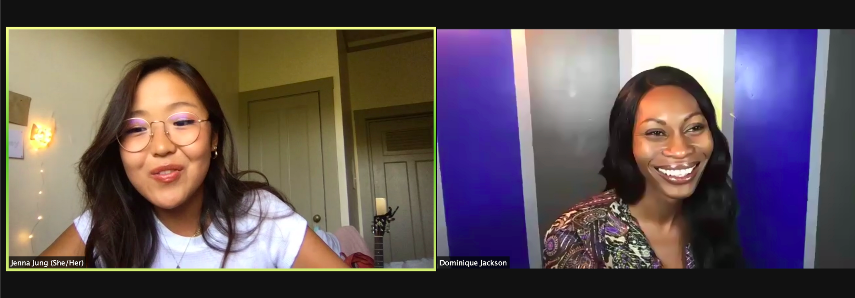As society strives for collective liberation, people must show up for all members of their community, according to speakers at the Gender Equity and Justice summit on Friday. Hosted by the Stanford Women’s Community Center (WCC) with the support of the Centers for Equity, Community, and Leadership, the event featured keynote speaker Dominique Jackson from FX’s POSE and local Bay Area activists. The summit centered on the experiences of gender marginalized activists.
“You want to be an ally, you are going to have to put you on the line because for a very long time, we have put ourselves on the line just trying to survive and we cannot do it by ourselves,” Jackson said. “We need each and every one of you who possibly can to say yes, I stand with you.”
Jackson is a fashion model, icon, actress and LGBTQIA+ community activist known for her role as Elektra Abundance in POSE. The show — which features the experiences of house mothers and transgender women in New York City and the underground ballroom culture of the 1980s — has made history for featuring a record-breaking number of transgender actors and actresses.
On Friday, Jackson spoke about how allies can best support the transgender community.
“Open yourselves or your space to people of trans experience and people of color. Give that opportunity,” Jackson said. “Give space so that people can live in their truth — even if it’s just for a night … provide space for us to come out and be safe and be ourselves.”
Prior to taking on her role in POSE, Jackson served as the Director of Programs for Destinations Tomorrow, a nonprofit organization dedicated to supporting LGBTQ+ people in the Bronx. She was just one of the many activists who shared their story.
The summit also organized a Community Lunch for students to gather and discuss the impact of POSE and hosted a panel of activists from the Bay Area. Panelist Isabella Zizi from the San Francisco Bay’s Idle Know More, a grassroot volunteer organization led by multi-generations of Native and non-Native women dedicated to climate activism, said that the 2011 Chevron refinery explosion in Richmond propelled her to become an environmental justice activist.
Elba Morales from Centro Legal de la Raza — a legal nonprofit organization dedicated to legal services agency protecting and advancing the rights of low-income, immigrant, Black and Latinx communities through bilingual legal representation, education and advocacy — pointed to the influence of faith in her activism.
“I just really saw how justice was tied to faith, race, sexuality … I need to believe in something bigger and sometimes that’s God, sometimes that’s the people, sometimes that’s my friends, but I believe that faith is what keeps me in this work,” Morales said.
The speakers explained that there is no single path to activism. Jenny Wun from AAPI Women Lead, an organization that aims to strengthen the progressive political and social platforms of Asian and Pacific Islander communities, said that people should pursue their passions and then bring activism into those spaces.
“If you’re good in tech, do tech. If you’re a good scientist and you dream to be a scientist, be a scientist. But when you get there, be ready to organize and mobilize people,” Wun said, paraphrasing advice she received from an elder at the Progressive Chinese Association, a nonprofit group committed to educating, organizing and empowering the low income and working-class Chinese immigrant community in San Francisco.
The speakers reminded students that pursuing activism isn’t always a choice. Juniper Yun of San Francisco’s Transgender District, a nonprofit organization dedicated to empowering the transgender community through ownership and safe community spaces, said that she turned to activism after feeling the impacts of discrimination on her own life.
“I truly believe that for any person who is Black, Brown, Indigenous, who is API, who is someone living on the margins of society, who is trans or gender non conforming: We need to strive for liberation for all to be able to find ourselves able to live in a society that so often sidelines us or even harms us,” Yun said.
No matter who you are or why you engage in activism, the speakers emphasized transparency and coalition building in order to mobilize others and bring about change.
“Be grounded in your principles and be very transparent. A lot of us talk about transparency but be transparent about who you are and as a firm believer, if folks want to rock with you based on their principles, they will come. So stay grounded in what you represent,” Wun said.
Recordings of the Gender Equity and Justice Summit will be available next week on the Women’s Community Center website.
